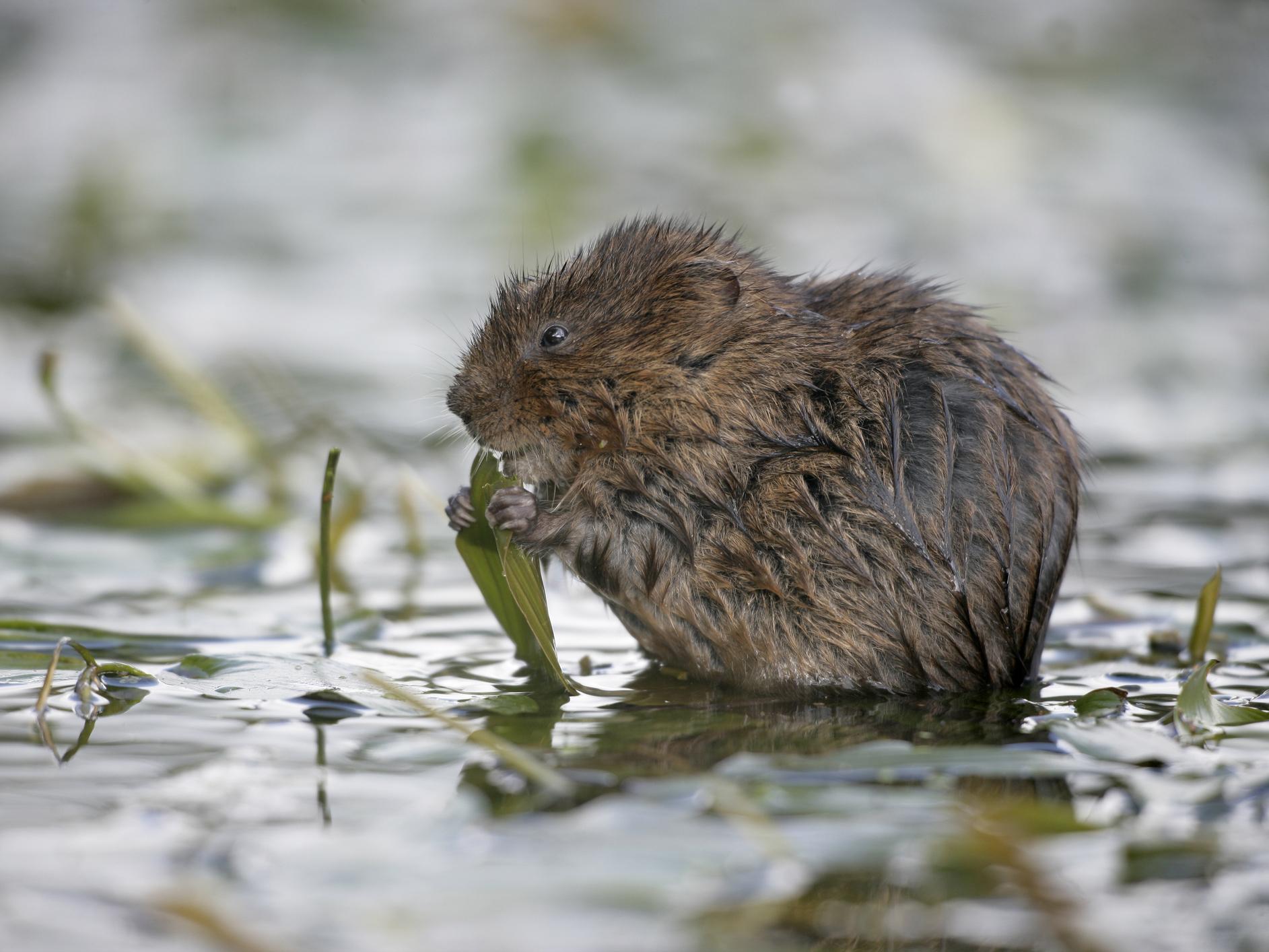‘Amazon rainforest’ of Wales home to endangered water voles threatened by motorway construction
Critics of planned M4 corridor hope success of rare mammals will bolster case to preserve Gwent Levels wetlands

Your support helps us to tell the story
From reproductive rights to climate change to Big Tech, The Independent is on the ground when the story is developing. Whether it's investigating the financials of Elon Musk's pro-Trump PAC or producing our latest documentary, 'The A Word', which shines a light on the American women fighting for reproductive rights, we know how important it is to parse out the facts from the messaging.
At such a critical moment in US history, we need reporters on the ground. Your donation allows us to keep sending journalists to speak to both sides of the story.
The Independent is trusted by Americans across the entire political spectrum. And unlike many other quality news outlets, we choose not to lock Americans out of our reporting and analysis with paywalls. We believe quality journalism should be available to everyone, paid for by those who can afford it.
Your support makes all the difference.Endangered water voles are among the creatures thriving on a stretch of wetlands dubbed “Wales’ Amazon rainforest”, which is under threat of destruction.
Conservation groups are up in arms to protest the planned construction of a motorway that will cut across vast swathes of the Gwent Levels, north of Newport.
Home to otters, rare bees and wildflowers, they say this crucial site for Welsh wildlife will be ruined “for the sake of saving 10 minutes’ journey time”.
Six years ago Gwent Wildlife Trust reintroduced water voles to a site on the edge of the Levels, and a new study has revealed that since then the rodents bred successfully and have spread six miles from the launch site.
The success was particularly welcome as these rodents are some of the UK’s most vulnerable mammals and have been lost from 94 per cent of their former rage.
Critics of the planned construction hope this good news will bolster their case to preserve the precious wetlands.
Local conservationists fought the new 14-mile-long, six-lane M4 corridor during a public inquiry that concluded in March, and a decision on the final fate of the Levels is expected soon.
The Welsh government has argued that the M4 is a route of “strategic importance” for the region, and is not capable of dealing with the current volume of traffic that uses it.
“Opponents of the scheme have generally been reluctant to acknowledge the environmental benefits which it would bring,” the government concluded in its closing statement at the inquiry.
“Notably in terms of improved air quality and noise conditions for the thousands of people who live close to the current, overloaded M4.”
The new project has been estimated to cost between £1bn and £2bn, and the environmentalists have backed future generations commissioner for Wales Sophie Howe in a call for this money to be spent on an improved public transport system instead.
Fearing the worst from the government’s final decision, Ian Rappel, chief executive of Gwent Wildlife Trust, said the success of the water vole reintroduction programme was “bittersweet”.
“If the new road gets the go-ahead billions will be spent destroying a very special place for the sake of saving 10 minutes of commuting time,” he said.
Besides water voles, common cranes have recently begun breeding on the proposed M4 route after dying out in the UK 400 years ago.
In total, 125 hectares of specially protected wildlife zones will be lost or damaged by the project. Threats from the motorway will include collisions with traffic, toxic fumes from vehicles and disruption of water flow.
The Wildlife Trusts have launched a campaign to save the Levels in order to preserve the habitat for future generations and to protect rare Welsh wildlife.
“When future generations realise the extent of the damage this generation has wreaked on our finite, beautiful, natural world they will ask ‘why?’ Why, for the sake of a few minutes knocked off journey times, did we destroy the unique and irreplaceable Gwent Levels,” said Wildlife Trusts chief executive Stephanie Hilborne.
“We do not have the right to destroy this treasure or deprive future generations of its joy.”
In response to the group's water vole findings, the Welsh government spokesman said: “Replacement water vole habitat is integrated into the M4 Project, as well as new habitat to ensure their numbers are maintained and increased for the long-term."
"The inspectors’ report on this, and all matter considered by the year-long public inquiry, is being considered and will shortly inform decision making on the future of the scheme."
Join our commenting forum
Join thought-provoking conversations, follow other Independent readers and see their replies
Comments